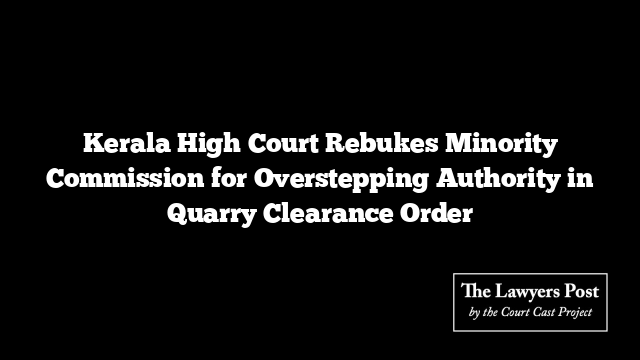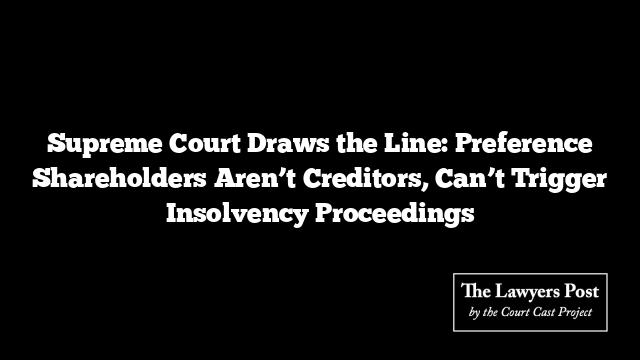In a sharp reminder of institutional boundaries, the Kerala High Court pulled up the State Minority Commission for stepping far beyond its legal mandate by directing the State Environment Impact Assessment Authority (SEIAA) to grant Environmental Clearance (EC) to a private quarry.
Justice C. Jayachandran, delivering the judgment, said the Commission appeared to act “out of misplaced sympathy” towards the quarry owner solely because he belonged to a minority community. The Court observed that such actions betrayed a disregard for the most basic principle of administrative law — knowing one’s limits.
“An authority passing an order must be conscious of its jurisdiction and, more importantly, its lack of it,” the judge noted, adding that the Commission had completely ignored this foundational restraint.
The controversy began when the Commission, responding to a complaint from one Mathew J, ordered SEIAA to issue him an EC within a month for his granite quarry project in Vellad village, Kannur. The SEIAA and the State Expert Appraisal Committee (SEAC) challenged this directive, arguing that the Commission had no such powers under the Kerala State Commission for Minorities Act, 2014.
The High Court agreed, clarifying that the Commission’s authority under Sections 9 and 12 of the Act was confined to safeguarding minority rights in social, educational, and economic spheres — not to intervene in environmental approvals governed by central law.
“The power usurped in this case cannot be traced to any provision of the Act,” the Court held, pointing out that SEIAA and SEAC are statutory expert bodies created under the Environmental Impact Assessment Notification of 2006, deriving their mandate from the Environment (Protection) Act, 1986.
Justice Jayachandran further emphasized that if a person is aggrieved by SEIAA’s decision, the proper recourse is to the National Green Tribunal (NGT), not the Minority Commission. The Court noted that the Commission had cited no legal provision for its directive and failed to recognize that the applicant’s minority status had no relevance to the denial of EC.
While acknowledging that the case merited costs, the Court exercised restraint, quashing the Commission’s order instead.
“Refusal of environmental clearance has nothing to do with the applicant’s community status. The Commission’s interference was wholly without jurisdiction,” the Court concluded.
With that, the High Court reaffirmed a simple principle often forgotten in bureaucratic overreach — good intentions cannot legalize bad authority.





